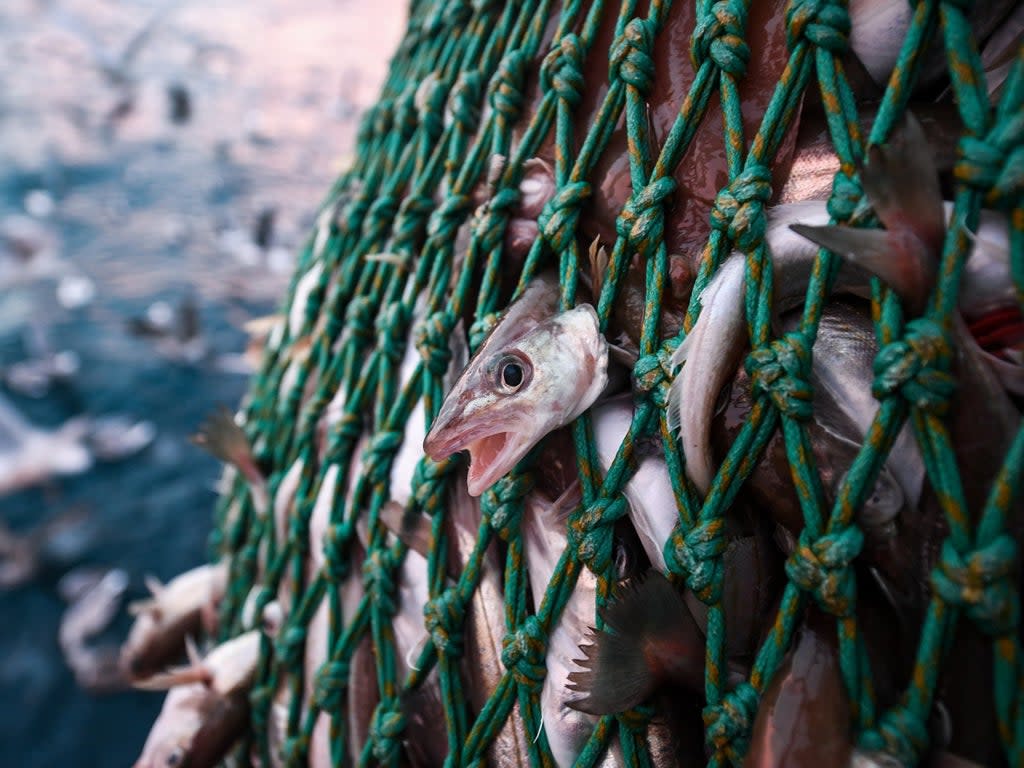Europe’s most highly-fished species ‘will be reduced to fraction’ by 2100

More than a quarter of Europe’s 20 most highly-fished sea species will be cut down in their numbers by the next century if climate change and overfishing continue to threaten their existence, researchers in Canada have warned.
The species – including scallops, mullet, and octopus – could be “reduced to a fraction” if not enough is done to tackle these issues as well as mercury contamination, according to a new University of British Columbia (UBC) study.
The three threats “work synergistically to create an unfavourable environment for fish,” Dr Vicky Lam, one of the study’s co-authors, said.
The study is one of the first to examine the combined effects of rising sea temperatures, overfishing, and mercury pollution on fish in waters around the European Union.
Lead study author Dr Ibrahim Issifu, a postdoctoral fellow at UBC’s Institute for the Oceans and Fisheries (IOF), said popular fish bought in the EU – such as great Atlantic scallop, red mullet, and common octopus – “will be weakened by the combined onslaught” of the threats.
“The population of these species will be reduced to a fraction of their present size by the end of the century,” he added.
The researchers selected the 20 fish species that have the highest average annual total catch and revenue in the EU, and determined the temperature tolerance range for each of the species using previous estimates of their preferred water conditions.
The authors then compared this range with temperature increases that were previously projected for EU waters up until 2100 under both high and low carbon emission scenarios.
Finally, differing levels of mercury concentrations, as well as unsustainable rates of fishing, were built into the model.
Impacts to Europe’s stocks of fish will vary widely depending on each species’ average temperature tolerance, the results showed.
Species such Norway lobster, common sole, great Atlantic scallop, red mullet, and European hake are projected to decline both in number and distribution if temperatures of the seas get too warm for them.
In addition, some larger species with longer lifespans, such as swordfish, are likely to be contaminated with up to 50 per cent more mercury than current concentration levels of the heavy metal.
Higher mercury concentrations would make the fish unsafe to eat, especially species higher up in the food chain such as bluefin tuna.
More mercury contamination would cause reproductive issues in the fish that are likely to reduce the populations of existing fish further, the researchers also warned.
Dr Lam, who is an IOF research associate, added: “The most overfished and exploited species are severely impacted by both climate change and high mercury concentrations. It is a critical situation.”
Her colleague Dr Juan Jose Alava, who is also the principal investigator of UBC’s Ocean Pollution Research Unit, called for a “binding international agreement to reduce both carbon dioxide and mercury emissions”.
He added: “This international effort should be fostered hand in hand with the elimination of harmful fisheries subsidies to eradicate overfishing.”
Dr Rashid Sumaila, a professor at the IOF and the School of Public Policy and Global Affairs, said that “governments and citizens must learn to be more proactive than reactive” to stave off the multiple stressors on sealife.
He added: “A way to be proactive is to listen to scientists and community members who normally sound alarms about looming dangers.”
The peer-reviewed study ‘Impact of Ocean Warming, Overfishing and Mercury on European Fisheries: A Risk Assessment and Policy Solution Framework’ has been published in the journal Frontiers in Marine Science.
Want us to report on an issue that matters to you? You can contact us by clicking here

 Yahoo News
Yahoo News 
